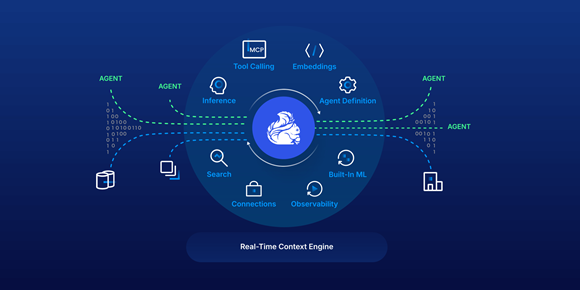Far more ‘reasonable’, Confluent extends AI agent strategy
Agentic artificial intelligence has superseded its predictive and generative cousins wth even more hype and hyperbole than expected. But as these services now start to come online and impact real world workflows, AI-focused software engineers will need them to launch faster, iterate smarter and scale more securely.
This is the business and technology validation behind Confluent’s move to introduce new Streaming Agents advancements.
The new Agent Definition service means IT teams can create production-ready agents in a few lines of code with built-in observability and debugging.
Why is agent observability and debugging important?
Because it allows teams to build real-world use cases with replayability, testability and safe recovery. Connecting data is hard, failures are tough to troubleshoot and brittle monoliths are unscalable, so observability and debugging with a centralised approach to governance does matter.
Real-Time Context Engine
Confluent says its Real-Time Context Engine provides fresh context with governance so organisations can bring trustworthy AI agents to market faster.
“With advancements in agentic AI and data processing automation, real-time data processing and streaming analytics capabilities are essential,” states the IDC MarketScape: Worldwide Data Platform Software 2025 Vendor Assessment. “The ability to process data as it enters the system is crucial for time-sensitive applications such as fraud detection, personalisation and operational monitoring, where delays can result in lost opportunities or increased risks.”
Streaming Agents
Streaming Agents brings the stream processing of Apache Flink (in terms of scale, low latency and fault tolerance) together with agent capabilities like large language models (LLMs), tools, memory and orchestration.
Because Streaming Agents lives directly in event streams, it monitors the state of a business with real-time data. This produces enterprise AI agents that can observe, decide and act in real time, without stitching together disparate systems.
“Today, most enterprise AI systems can’t respond automatically to important events happening in a business without someone prompting them first,” said Sean Falconer, head of AI at Confluent. “This leads to lost revenue, unhappy customers, or added risk when a payment fails or a network malfunctions. Streaming Agents brings real-time data and agent reasoning together so teams can quickly launch AI agents that observe and act in real time with the freshest, most accurate data.”
Streaming Agents can be built on major cloud provider hyperscalers (Amazon Web Services (AWS), Microsoft Azure and Google Cloud, obviously) and communicate with external agents built on frameworks such as LlamaIndex.
They’re fueled with real-time context and can trigger event-driven workflows across the AI stack, including Clickhouse, MongoDB, Snowflake etc. Customers can also team up with industry experts at organisations such as Infosys to implement Streaming Agents and scale AI.
Open source: Flink Agents
An open source version called Flink Agents is an Apache Flink project created from a joint collaboration between Alibaba Cloud, Confluent, LinkedIn and Ververica. It’s designed with Flink as a native framework for building long-running, event-driven AI agents directly within Flink’s runtime.
To learn more, contribute and join the community, visit the GitHub page.




